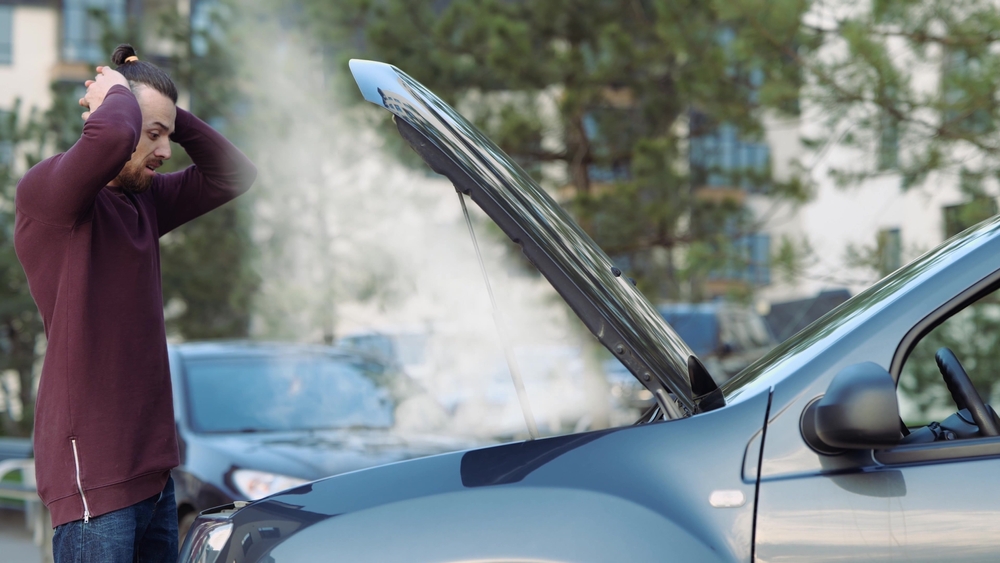
When you bring your car to the shop, you expect a full inspection and honest feedback. But the reality is that some car problems mechanics admit they pretend not to see. Not every issue gets flagged, and it’s not always because of laziness or dishonesty. Sometimes, mechanics skip mentioning certain problems to save you money, avoid unnecessary worry, or because the fix can wait. Other times, shops are just too busy to catch every minor detail. Understanding which issues often go unmentioned can help you be a smarter car owner and keep your vehicle in better shape. Let’s look at the most common car problems mechanics quietly overlook.
1. Slightly Worn Brake Pads
Brake pads are essential for your safety, but mechanics don’t always point out mild wear. If your pads are just beginning to show signs of use but still have plenty of life left, many mechanics will simply make a mental note for next time. They know that brake pads wear gradually, and it’s not urgent until the pads are much closer to their minimum thickness. This is one of those car problems mechanics admit they pretend not to see unless immediate action is needed. It’s worth asking for a specific measurement of your brake pad thickness so you know when to plan for replacement.
2. Small Oil Leaks
Finding a little oil on the bottom of your engine is common, especially in older cars. Many mechanics will overlook minor leaks if they’re not causing a drop in oil level or visible puddles under your car. These slow leaks can go for years without causing real trouble. Mechanics may not mention them because the repair can be expensive and unnecessary unless the leak gets worse. However, if you park in a garage or have concerns about environmental impact, it’s wise to ask your mechanic to keep an eye on it.
3. Minor Exhaust System Rust
Rust on the exhaust system is almost inevitable, especially in areas with harsh winters or road salt. If the rust isn’t structural or causing noise, many mechanics won’t bring it up. They know that surface rust rarely leads to immediate failure and that most drivers don’t need to replace exhaust components until there’s a hole or a rattle. Still, if you keep your car for the long haul, it’s good to ask about any visible corrosion during regular inspections.
4. Aging Shock Absorbers
Shock absorbers wear out slowly. Unless they’re leaking fluid or causing a noticeably rough ride, mechanics might not mention minor wear. This is another example of car problems mechanics admit they pretend not to see because the symptoms develop gradually. If your car still handles well and doesn’t bounce excessively, you probably have time before replacement becomes critical. However, if you notice your car feels less stable, it’s time to ask for a closer look.
5. Slightly Cracked Belts
Modern serpentine belts are tough and can develop small cracks without failing. Mechanics often skip mentioning minor surface cracks, especially if the belt is otherwise in good shape and not making noise. A belt usually only needs replacing when cracks are deep or if the rubber is fraying. If you’re planning a long road trip or your car is older, it’s reasonable to ask your mechanic about the condition of all belts, just for peace of mind.
6. Faded or Dirty Cabin Air Filters
Cabin air filters are easy to overlook. Unless they’re completely clogged, mechanics may not mention them at every visit. A slightly dirty or faded filter doesn’t impact performance much, though it can affect air quality over time. Since changing this filter is a simple job, some mechanics leave it up to the owner to handle at their leisure. If you have allergies or live in a dusty area, check your cabin filter yourself or ask for a replacement schedule.
7. Low Tire Tread on Non-Drive Wheels
Tires on the non-drive wheels (the rear tires on a front-wheel-drive car, for example) often wear more slowly. Mechanics sometimes overlook slightly low tread on these tires, especially if the main drive tires are in good shape. Unless there’s a safety issue or the difference in tread depth is significant, you may not hear about it until the next rotation. Still, uneven tire wear can affect handling and safety, so it’s smart to check tread depth on all four wheels yourself or request a full tire inspection.
What You Can Do to Stay Informed
Knowing about car problems, mechanics admit they pretend not to see, puts you in control of your vehicle’s maintenance. Don’t be afraid to ask questions or request a detailed inspection report. Simple habits like checking your own oil level, tire tread, and listening for new noises can catch issues early. And if you’re ever unsure about a mechanic’s advice, you can always seek a second opinion from another professional.
What’s the most surprising car problem you’ve noticed that your mechanic never mentioned? Share your experiences in the comments below!
What to Read Next…
- 9 Car Brands That Quietly Lost Consumer Trust In The Last 5 Years
- 7 Car Models That Mechanics Avoid Even When Theyre Discounted
- 9 Car Brands Losing Trust With Mechanics
- 10 Common Car Repairs That Will Cost You Less Than You Think
- 8 Car Maintenance Habits That Will Save You Thousands
The post These 7 Car Problems Mechanics Admit They Pretend Not to See appeared first on Clever Dude Personal Finance & Money.







